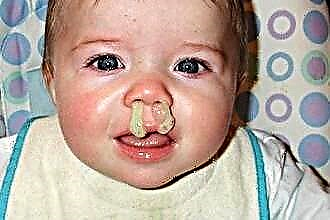Every person sometimes needs to be in silence, even if in everyday life he prefers noisy companies and active rest. However, what to do if there is a constant or periodic ringing in the left, right or both ears against the background of loud sounds and in the absence of external stimuli? The reasons why the ears ring and the ears get clogged up can be different. But the obsessive unpleasant noise exhausts the patient, creates the prerequisites for an increase in the level of anxiety. Patients who are worried about tinnitus complain of sleep disturbance, irritability. A seemingly harmless symptom can be extremely painful and literally maddening, so you need to find out why it occurs.
Causes

Hearing the sounds of the surrounding world is one of the most valuable abilities, which is realized thanks to the presence of special senses. Hearing is necessary for orientation in space, perception of information. At the same time, extraneous acoustic stimuli distract, making it difficult to focus on something important. Why is ringing in the ears an urgent problem? Researchers say that it is this characteristic of the subjective "noise background" that patients indicate most often - while rustling, rustling and other variations of sounds are less common. The causes of severe tinnitus should be found as soon as possible after the symptom onset.
What makes your ears ring if there is no sound source? Asking the people around him and evaluating his own feelings, the patient comes to the conclusion that unpleasant sounds are caused by processes taking place in his own body. The causes of ringing in the ears and head can be divided into groups:
- Associated with damage to the sound-conducting structures of the ear.
- Associated with the pathology of the sound-perceiving system.
Ringing in the ears, the causes of which are caused by disorders of the organ of hearing, occurs with hearing loss.
Decreased hearing acuity is an alarming symptom, which, even without additional manifestations, indicates the need to start an examination.
The combination of this symptom with the appearance of ear noise, which the patient describes as ringing, does not always indicate the likelihood of rapid progression of the disease, but the irreversibility of the process cannot be ruled out in the absence of treatment. The causes of tinnitus are often various forms of hearing loss, which can be conductive, sensorineural and mixed. It is advisable to consider the etiology of each of them, since a decrease in hearing acuity can be a manifestation of a number of pathologies that determine the patient's complaints about subjective noise.
Conductive hearing loss is said if the structures of the outer and middle ear that are responsible for the conduction of sound are affected. In the sensorineural type of hearing loss, impairments concern the sound system, which includes the inner ear, the auditory nerve and the central parts of the auditory analyzer. In the case of a mixed type, the patient has both variants of pathological syndromes.
 Ear diseases of an infectious and inflammatory nature - otitis media, can create the prerequisites for the appearance of a subjective sound. The causes of ringing in the left ear are most often explained by the inflammatory process in the middle or inner part of the hearing organ.
Ear diseases of an infectious and inflammatory nature - otitis media, can create the prerequisites for the appearance of a subjective sound. The causes of ringing in the left ear are most often explained by the inflammatory process in the middle or inner part of the hearing organ.
Considering diseases and syndromes, the list of clinical manifestations of which may include "background noise", one can name such as:
- cerebral atherosclerosis;
- osteochondrosis of the cervical spine;
- rhinitis, sinusitis.
The causes of ringing in the ear in the case of the listed pathologies are not always the same. Sometimes the appearance of subjective noise is due to a combination of pathological processes, the presence of different diseases in the same patient.
Conductive hearing loss
Why does it ring in the ear? Answering this question, the possibility of an inflammatory process or neoplasm cannot be ruled out. Ringing in one ear can be caused by infection, injury, or swelling. Even with the normal functioning of the sound-sensing system, the presence of factors provoking conductive hearing loss explains the appearance of noise.
Conductive hearing loss can be caused by:
- obstruction in the external auditory canal (sulfur plug, purulent masses, fungal infection, foreign body, tumor, trauma);
- perforation of the tympanic membrane due to the inflammatory process, as a result of injury;
- an inflammatory process in the middle ear, acute or chronic and characterized by the accumulation of fluid, pus;
- neoplasm in the middle ear.
Why does it ring in the right ear with otitis media? Many patients notice hearing loss, congestion, headache. However, tinnitus - and not necessarily ringing - is not always present. It is most pronounced with significant nasal congestion, subsides after the release of the nasal cavity from secretions, the use of vasoconstrictor drops.
Ringing can appear with a sharp and inaccurate blowing out with both nostrils at once.
 The "background noise" caused by the tumor grows gradually and disappears with the removal of the "mechanical barrier" for the sound. Thus, the immediate cause of ringing in the ears is a neoplasm, which provokes a decrease in hearing acuity.
The "background noise" caused by the tumor grows gradually and disappears with the removal of the "mechanical barrier" for the sound. Thus, the immediate cause of ringing in the ears is a neoplasm, which provokes a decrease in hearing acuity.
When assessing the patient's condition, taking an anamnesis is important. The habit of thoroughly cleaning your ears using cotton swabs or matches is actually harmful. Sulfur is injected deep into the ear canal, accumulates - a sulfur plug appears. Therefore, poor hygiene is another possible reason why it rings in the left ear or on the right side.
Sensorineural hearing loss
To provoke the development of sensorineural hearing loss are capable of:
- Influenza and other acute respiratory viral infections.
- Measles, scarlet fever, meningitis, herpes infection.
- Syphilis, mumps of an infectious nature.
- Meniere's disease, otosclerosis, acoustic neuroma.
- Cerebral atherosclerosis, diabetes mellitus.
- Injuries (including barotrauma).
- Hypertension, ischemic heart disease.
- Taking medications.
- Prolonged exposure to noise.
- Age-related changes.
- Intoxication.
Sensorineural hearing loss cannot be perceived as an independent disease. It is not a separate nosological form; it occurs against the background of numerous pathological processes. Therefore, the answer to the question of why the ears are ringing cannot be the only one for all patients. It is necessary to take into account all the characteristics of the patient's condition, carefully collect anamnesis, evaluate complaints.
If the ears ring, the causes are often attributed to a viral or bacterial infection. The greatest number of complications from the auditory organ is observed with influenza, scarlet fever, herpes infection. Viral ganglionitis associated with damage to the first nucleus of the auditory analyzer, as well as cochleovestibular neuritis, may develop. Why ringing in the ears with Meniere's disease? The exact causes of the onset of the disease currently remain unknown, the prerequisites are inflammatory processes, vascular disorders, head trauma. Pathological changes progress gradually. At first, the patient is worried about the noise on one side, later it becomes bilateral. The noise increases during seizures, which can be repeated many times.
 Sensorineural hearing loss can be a consequence of drug therapy.Why are my ears ringing? This is due to the toxic effect of drugs:
Sensorineural hearing loss can be a consequence of drug therapy.Why are my ears ringing? This is due to the toxic effect of drugs:
- antibiotics belonging to the aminoglycoside group (gentamicin);
- antimalarial drugs (quinine);
- salicylates, cytostatics, diuretics, etc.
Many household and industrial poisons can have an ototoxic effect. Loud sound also has a damaging effect. The risk group includes employees of industrial enterprises of "harmful" industries, as well as people working in conditions of constant exposure to noise. If it rings in the left ear, the cause is sometimes attributed to acoustic trauma.
There is a variant of idiopathic sensorineural hearing loss that occurs suddenly for no specific reason. It rings in the ear, however, it is impossible to associate a symptom with an objective disorder. Experts in this case talk about the likelihood of the patient having neurocirculatory dystonia.
Other reasons
If your ears ring, it may be due to stress. The pathogenetic mechanisms of the occurrence of the noise background differ, but the etiological basis remains unchanged. Anxiety and emotional stress can actually trigger noise complaints. This symptom is observed mainly in those patients who are in a state of constant emotional stress, do not sleep enough, rest little.
In some patients, the appearance of noise is explained by an acute respiratory infection, exacerbation of chronic sinusitis. What makes your ear ringing? Hearing worsens as a result of severe swelling of the nasal mucosa, disorders of the auditory tube. It is noteworthy that the congestion and "background noise" disappear as the activity of the inflammatory process decreases.
Why does my ears sometimes ring? Transient, spontaneously disappearing noise may be associated with inappropriate sleeping position. If it persists for a long time, does not go away even after rest, you need to think about other causes of its occurrence.



